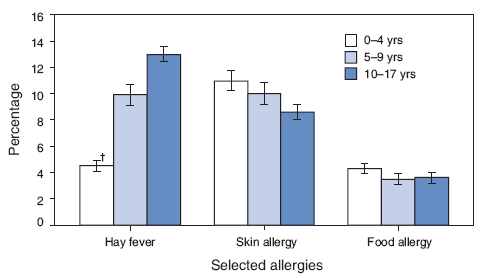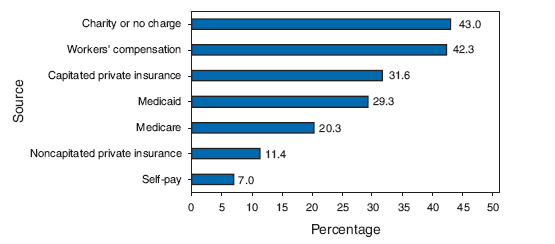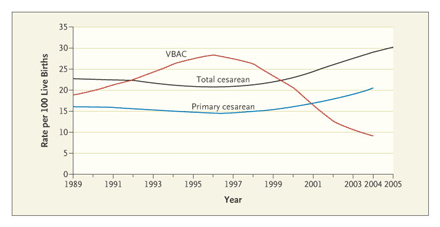Friday, March 30, 2007
P4P: Are Vested Interests Pushing the Agenda?
-
Printer Friendly|#| Trackback
New Data, More Doubts About Pay-for-Performance (P4P)
"Again, as we have noted before, developing performance measures that will truly benefit patients will require detailed understanding of the clinical context, keen skeptical analysis of the available relevant research data, and careful balancing of benefits, harms and costs. All this would be very hard under the best of circumstances. But the continual attempts by those with vested ideological and financial interests to influence performance measures to advance their own interests make it unlikely that the whole P4P movement will have any good effects on patients.
The first improvement needed in the P4P movement is clear, detailed disclosure of all conflicts of interest affecting those involved in the movement at any stage.
At this point, patients and physicians should be very skeptical about who is likely to benefit from any new performance measure, particularly measures that are lavishly promoted."
This nicely sums up my suspicions about P4P beyond just the fact that it rewards task completion over the exercise of medical judgement...
[Health Care Renewal]
March 30, 1842: The First Ether Anesthetic
-
Printer Friendly|#| Trackback
Wikipedia
"Although William T.G. Morton is well-known for performing his historic anesthesia on October 18, 1846 in Boston, Massachusetts, C.W. Long is now known to be the first to have used an ether-based anesthesia.
After observing the same effects with ether that were already described by Humphry Davy in 1800 with nitrous oxide, C.W. Long used ether the first time on March 30, 1842 to remove a tumor from the neck of his patient, Mr. James M. Venable. Long subsequently removed a second tumor from Venable and used ether anesthesia in amputations and childbirth. The results of these trials were published several years later (in 1849) after Morton's publication. "
Counterinsurgency in Congress
-
Printer Friendly|#| Trackback
Professor Arthur Herman
"I think in some ways here, what you are really seeing is that we’ve got a general who finally understands and gets it about the counterinsurgency in Iraq. What we need is an administration that’s going to deal with the counterinsurgency at home, which is taking root in the Democratic Congress."
[Hugh Hewitt]
Thursday, March 29, 2007
Which is more important? Iraq or Afghanistan?
-
Printer Friendly|#| Trackback
Charles Krauthammer: The wars against radical Islamic insurgents
"Thought experiment: Bring in a completely neutral observer -- a Martian -- and point out to him that the United States is involved in two hot wars against radical Islamic insurgents. One is in Afghanistan, a geographically marginal backwater with no resources, no industrial and no technological infrastructure. The other is in Iraq, one of the three principal Arab states, with untold oil wealth, an educated population, an advanced military and technological infrastructure which, though suffering decay in the later Saddam years, could easily be revived if it falls into the right (i.e. wrong) hands. Add to that the fact that its strategic location would give its rulers inordinate influence over the entire Persian Gulf region, including Saudi Arabia, Kuwait and the Gulf states. Then ask your Martian: Which is the more important battle? He would not even understand why you are asking the question. "
Resolved: C. diff enterocolitis should be a reportable disease
-
Printer Friendly|#| Trackback
The CDC just published their Summary of Notifiable Diseases --- United States, 2005
I wonder why C. diff enterocolitis isn't on the list? I've seen this illness cause more morbidity and mortality in the United States than the big long list they do track...
MMWR: Percentage of Children with Selected Allergies
-
Printer Friendly|#| Trackback

"During 2003--2005, the percentage of children with hay fever increased with age; children aged 10--17 years were nearly three times as likely to have hay fever than children aged 0--4 years. In contrast, the percentage of children with skin allergies decreased with age, and the percentage of children with food allergies did not vary with age."
Tuesday, March 27, 2007
New Study on Malpractice Costs
-
Printer Friendly|#| Trackback
Pacific Research Institute:
JACKPOT JUSTICE: The True Cost of America's Tort System
Processing....
Thursday, March 15, 2007
CDC: Insurance Affects New Patient Acceptance
-
Printer Friendly|#| Trackback
Percentage of Office-Based Primary-Care Physicians Who Did Not Accept New Patients, by Expected Payment Source --- National Ambulatory Medical Care Survey, United States, 2003--2004

"Although 94.2% of primary-care physicians reported in 2003--2004 that they were accepting new patients, acceptance varied by the patient's expected payment source. Among the physicians, 43.0% did not accept new charity cases, 29.3% did not accept new Medicaid patients, and 20.3% did not accept new Medicare patients. Only 7.0% did not accept new patients who self-paid."
Monday, March 12, 2007
CDC: Quadrivalent Human Papillomavirus Vaccine
-
Printer Friendly|#| Trackback
Recommendations of the Advisory Committee on Immunization Practices (ACIP)
"Routine Vaccination of Females Aged 11--12 Years
ACIP recommends routine vaccination of females aged 11--12 years with 3 doses of quadrivalent HPV vaccine. The vaccination series can be started as young as age 9 years.
Catch-Up Vaccination of Females Aged 13--26 Years
Vaccination also is recommended for females aged 13--26 years who have not been previously vaccinated or who have not completed the full series. Ideally, vaccine should be administered before potential exposure to HPV through sexual contact; however, females who might have already been exposed to HPV should be vaccinated. Sexually active females who have not been infected with any of the HPV vaccine types would receive full benefit from vaccination. Vaccination would provide less benefit to females if they have already been infected with one or more of the four vaccine HPV types. However, it is not possible for a clinician to assess the extent to which sexually active persons would benefit from vaccination, and the risk for HPV infection might continue as long as persons are sexually active. Pap testing and screening for HPV DNA or HPV antibody are not needed before vaccination at any age. "
Sunday, March 11, 2007
Barbecued Ribs
-
Printer Friendly|#| Trackback
I love barbecued ribs. I never tried to make them at home because I thought it must be too time intensive. Barbecued ribs have to be made on a barbecue, right? Wrong. Barbecued ribs can be made in a crock pot. I think these ribs are as good if not better than any you'll find in a restaurant (even a Texas barbecue restaurant). I'm posting it here because I've promised several nurses I'd bring in the recipe, always forget, so now I can just point them here.
Ingredients:
- 3.5 pounds baby back ribs
- 0.25 c brown sugar
- 0.5 tsp black pepper
- 3 tbsp liquid smoke
- 2 cloves garlic, finely chopped
- 1 tsp salt
- 1 medium onion, sliced
- 0.5 cup Coke (not diet!)
- 1.5 c. barbecue sauce (I like Cattleman's)
1. Remove inner skin from ribs (I use pliers to make this easier). Mix brown sugar, pepper, liquid smoke, garlic, and salt. Rub mixture onto ribs and cut them into 4 inch pieces. Layer ribs and onion in crock pot.
2. Cover and cook on low setting for 6-9 hours (depending on how your crock pot interprets 'low').
3. Remove ribs from pot. Drain and discard liquid.
4. Dip ribs into barbecue sauce, place ribs back into crock pot and pour any remaining sauce over ribs. Cook on low for an additional hour.
This recipe makes enough for 2-4 adults, depending on their appetite. For our family of 4, I make a double recipe (7 lbs of ribs) so there are sure to leftovers. I have tried this recipe with spare ribs instead of baby-back ribs and found it much too greasy for my liking.
Own Your Own Cable Modem? Check The Speed!
-
Printer Friendly|#| Trackback
I have cable modem service to my home via Comcast. I bought my own modem, the Motorola 4100, about three years ago so I wouldn't have to pay the cable modem rental fees. Since the modem only cost about $50, I've saved about one hundred dollars over that time period.
I had Comcast come install two CableCards in my new Tivo Series 3 and the installers commented on what an old modem I had. They went on to explain that one advantage of renting a modem is that, when the modem limits download speed, Comcast will replace it with a faster one. Having just installed a new Airport Extreme Pre-N wireless router, this seemed like something to check out.
After reading the spec. sheets on both modems it looks to me like their download speed is the same (38 Mbps). However, the Motorola 5101 I just installed is faster in my tests. Maybe it's the DOCSIS 2.0 support. Well, I'm just an unfrozen caveman anesthesiologist but I know speed when I see it...16 Mbps:

If you bought your own modem several years ago, consider upgrading it. The results might surprise you.
Friday, March 9, 2007
Lifehacker: Gmail Manager
-
Printer Friendly|#| Trackback
Download of the Day: Gmail Manager (Firefox) - Lifehacker
" The Gmail Manager Firefox add-on obviates the need to keep your Gmail open in a tab all the time by displaying your email info in a statusbar pop-up, as shown."
A must-have for a Firefox Gmail user
Thursday, March 8, 2007
Send Addresses From Google Maps To Your BMW
-
Printer Friendly|#| Trackback
well, in Germany anyway...
Why Are C-Section Rates Still Going Up?
-
Printer Friendly|#| Trackback

As an anesthesiologist I provide anesthesia for cesarean sections quite often. In fact, when I'm on overnight call it's what I spend most of my time doing. Usually, anesthesia for c-section consists of a spinal anesthetic, or using a pre-existing epidural catheter, or (more rarely and usually only in emergencies) a general anesthetic. I am therefore quite interested in the subject of cesarean section rates and what effects how often they are done. I learned some things from this article [free full text]:
Cesarean Delivery and The Risk-Benefit Calculus
1. Parturients are different--they are heavier and older.
2. The number of premature and low birth-weight babies has grown.
3. Vaginal breech deliveries are no longer recommended.
4. Operative deliveries (forceps or vacuum) are less common due to better data describing their risks.
5. More labors are induced (20% in 2003 vs 9.5% in 1990) and induced labors are more likely to result in C-section.
6. Changes in provider behavior
"At least one study found that physicians' malpractice premiums, the number of claims against physicians and hospitals, and the physician's preception of the risk fo being sued were all positively correlated with the likelihood of cesarean delivery. Many in the field defend the rising cesarean rates by citing concern about legal jeopardy, and indeed lawsuits often allege a failure to perform a timely cesarean delivery."
Look at John Edwards' list of law cases (thank you, Google). Notice the medical malpractice cases:
MEDICAL MALPRACTICE CASES
Another specialty Edwards developed was in medical malpractice cases involving problems during births of babies. According to the New York Times, after Edwards won a $6.5M verdict for a baby born with cerbral-palsy, he filed at least 20 similar lawsuits against doctors and hospitals in deliveries gone wrong, winning verdicts and settlements of more than $60M.
|
| Case |
Summary of Facts |
Case Type |
Result |
Griffin v. Teague, et al.
(Mecklenburg Co. Superior Ct., NC, 1997) |
Application of abdominal pressure and delay in performing c-section caused brain damage to infant and resulted in child having cerebral palsy and spastic quadriplegia. Verdict set record for malpractice award. |
Medical Malpractice |
$23.25M
verdict |
Campbell v. Pitt County Memorial Hosp.
(Pitt County, NC, 1985)
|
Infant born with cerebral palsy after breech birth via vaginal delivery, rather than cesarean. Established North Carolina precedent of physician and hospital liability for failing to determine if patient understood risks of particular procedure. |
Medical
Malpractice |
$5.75M
settlement |
| Wiggs v. Glover, et al. |
Plaintiff alleged infant's severe cerebral palsy was caused by negligent administration of pitocin, failure to use fetal monitor, or timely intervening in baby's fetal distress. |
Medical
Malpractice |
2.5M
settlement |
| Cooper v. Craven Regional Med. Ctr., et al. |
Infant suffered severe brain damage after obstetrician failed to moderate use of Picotin after baby displayed clear fetal distress. |
Medical
Malpractice |
$2.5M
settlement |
Dixon v. Pitt County Memorial Hospital
(Pitt County, NC) |
Birth-related injuries including cerebral palsy and mental retardation allegedly caused by obstetrician's failure to diagnose fetal distress, including umbilical cord wrapped around baby's neck prior to delivery. |
Medical
Malpractice |
2.4M
settlement
|
Despite the increase in c-section rates nationwide, we have seen no reduction in the cerebral palsy rate...
Details On Why We Get Migraines
-
Printer Friendly|#| Trackback
"A University of Iowa study may provide an explanation for why some people get migraine headaches while others do not. The researchers found that too much of a small protein called RAMP1 appears to "turn up the volume" of a nerve cell receptor's response to a neuropeptide thought to cause migraines.
"The neuropeptide is called CGRP (calcitonin gene-related peptide) and studies have shown that it plays a key role in migraine headaches. In particular, CGRP levels are elevated in the blood during migraine, and drugs that either reduce the levels of CGRP or block its action significantly reduce the pain of migraine headaches. Also, if CGRP is injected into people who are susceptible to migraines, they get a severe headache or a full migraine.
"We have shown that this RAMP protein is a key regulator for the action of CGRP," said Andrew Russo, Ph.D., UI professor of molecular physiology and biophysics. "Our study suggests that people who get migraines may have higher levels of RAMP1 than people who don't get migraines." "
The abstract is here.
Wednesday, March 7, 2007
Aspirin/NSAIDs For Colorectal Cancer Prevention Discouraged
-
Printer Friendly|#| Trackback
"People who are at average risk for colorectal cancer, including those with a family history of the disease, should not take aspirin or non-steroidal anti-inflammatory drugs (NSAIDs) to try to prevent the disease, according to a new recommendation from the U.S. Preventive Services Task Force. The recommendation is published in the March 6 issue of the Annals of Internal Medicine."
"USPSTF assessment: Overall, the USPSTF concluded that harms outweigh the benefits of aspirin and NSAID use for the prevention of colorectal cancer."
[AHRQ]
Tesla Motors' Plan
-
Printer Friendly|#| Trackback
The Tesla Motors Blog, this entry by marketing chief Darryl Siry, sums up their business plan:
"We have just announced that we will build an assembly facility in Albuquerque, N.M., to build our WhiteStar sports sedan in the future. We will establish company-owned sales and service centers where our customers can get their vehicles serviced. We have the plans, the management, and the access to capital to achieve our vision of being the leading designer and manufacturer of the most desirable electric vehicles in the world. We expect to grow into a multi-billion dollar company selling hundreds of thousands of vehicles. It might take some time but that is what we are going to do."
AFP: Preparation of the Cardiac Patient for Noncardiac Surgery
-
Printer Friendly|#| Trackback
Excellent Lee Fleisher article in American Family Physician [free full text] for any primary care physician who is asked to do pre-op medical evaluations (note I didn't use the word 'clearance').
Medicare To Cut Physician Fees 9.9% in 2008
-
Printer Friendly|#| Trackback
It's official (pdf). The Center for Medicare and Medicaid plans on cutting the physician fee schedule 9.9 percent as of January 2008. Five percent for 2007 (which cut was postponed due to a temporary one year patch), and 4.9% for 2008.



